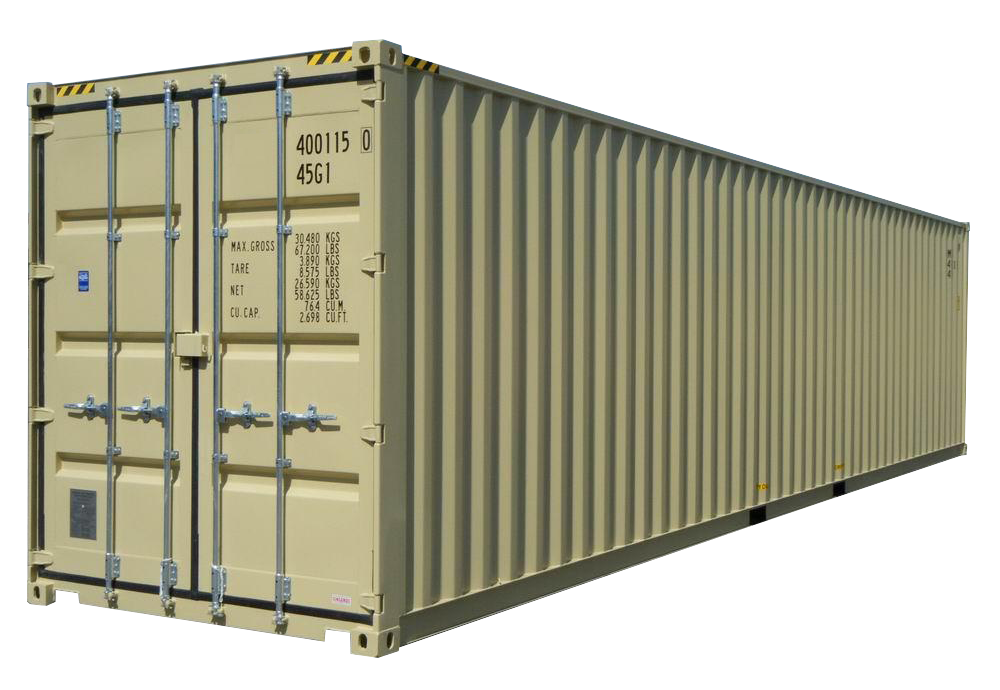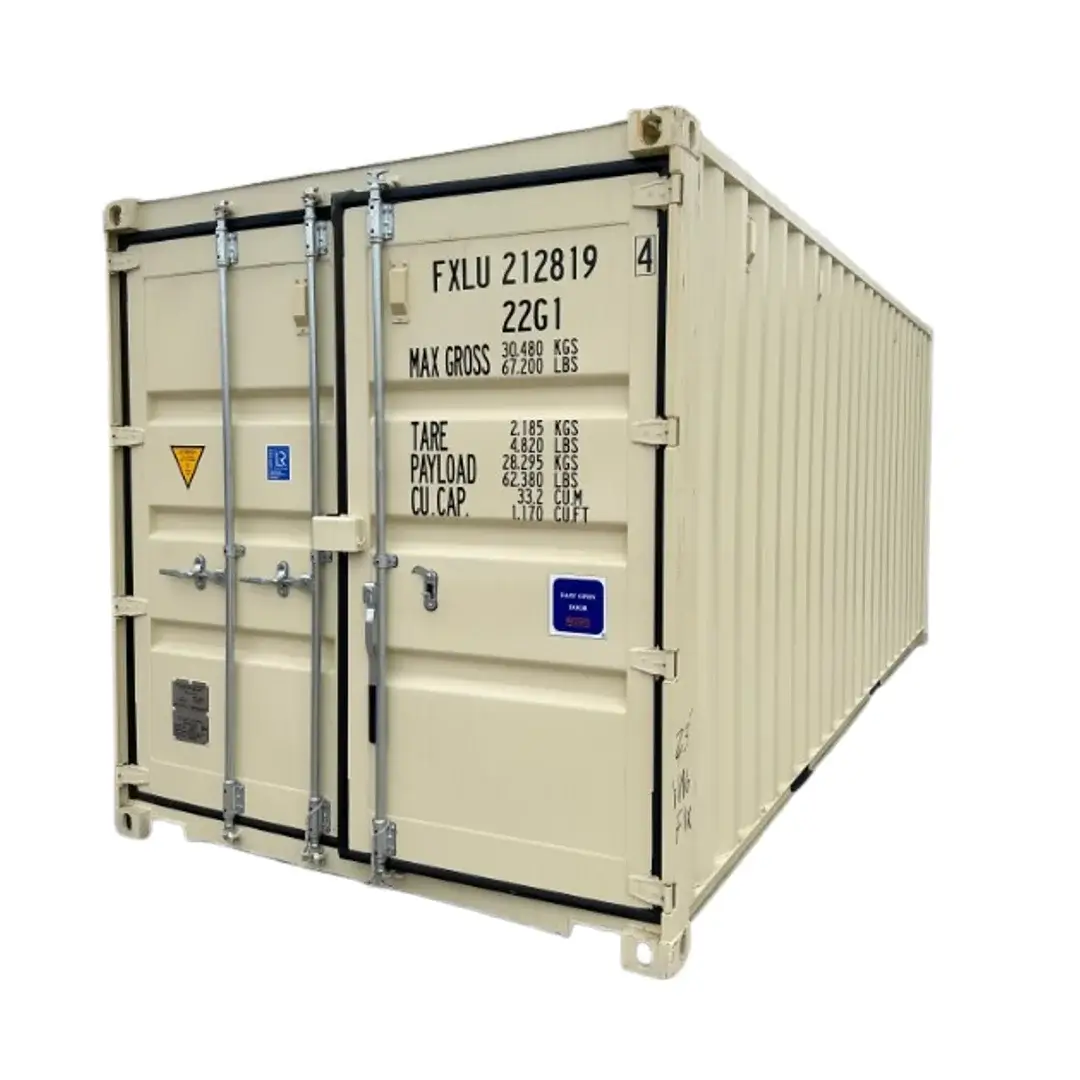The Ultimate Overview to Selecting the Right Shipping Container for Your Requirements
When it comes to choosing the right delivery container, comprehending your details requirements is crucial. You'll want to think about aspects like size, type, and product to assure you make the ideal option. From standard sizes to specialized alternatives, there's a lot to check out. Plus, budgeting for both the container and any type of alterations can make a big difference. Allow's break down the vital facets to assist you locate the best suitable for your requirements.
Understanding Shipping Container Sizes
When you're picking a delivery container, recognizing the various sizes available is essential for making the ideal choice. Delivering containers generally can be found in common sizes of 20 and 40 feet, yet you'll also find other measurements. Understanding the dimension you require relies on what you plan to shop or transport.If you're relocating smaller sized things, a 20-foot container could be optimal, while bigger deliveries frequently require a 40-foot container. Keep in mind that the height can additionally differ; high dice containers use added upright space, which can be useful for taller goods - Rent New Shipping Container 40' x 8' x 9’6".Before determining, gauge your freight, and take into consideration just how much room you'll require for packing and unloading. Always element in potential future demands-- going with a slightly larger container may conserve you trouble down the line. Ultimately, picking the appropriate dimension will certainly enhance performance and ensure your items are protected throughout transit
Types of Delivery Containers Available
There are several kinds of delivery containers available, each made for particular purposes and freight demands. The conventional completely dry container is flexible, perfect for basic cargo. If you're shipping perishable goods, think about a refrigerated container, which preserves a controlled temperature level. For oversized products, high cube containers offer additional elevation, suiting taller loads.If you need to transport heavy equipment or equipment, level shelf containers offer a tough base without walls. At the same time, open-top containers enable for easy loading of tall freight, with a removable tarp covering for security. If you're trying to find adaptability, consider a retractable container that can be conveniently kept when not in use.Lastly, specialized containers like tank containers are made use of for liquids, while vented containers are made for bulk cargo that requires ventilation. Understanding your freight kind will help you pick the appropriate container to fulfill your shipping needs efficiently.
Product Factors To Consider for Resilience
When choosing a delivery container, the product plays an essential function in its resilience. You'll wish to consider the advantages of steel versus light weight aluminum, especially concerning deterioration resistance. Understanding these factors can assist you make a more informed option for your shipping needs.
Steel vs. Light weight aluminum Containers
Just how do you choose in between steel and light weight aluminum containers for your shipping needs? Beginning by taking into consideration longevity. Steel containers are durable and deal superb stamina, making them ideal for heavy tons and severe conditions. They resist damages from impacts and are typically less costly, which can be a major variable for budget-conscious buyers.On the other hand, light weight aluminum containers are light-weight, which can conserve you on delivery expenses. They're easier to navigate and are a great option if you need to move items often. Light weight aluminum is normally extra expensive and much less robust than steel. Weigh your certain needs very carefully, including weight, price, and the sort of freight you'll be delivery, to make the best choice for your scenario.
Rust Resistance Aspects
Picking the appropriate material doesn't just include weight and price; corrosion resistance plays a significant duty in longevity. When choosing a shipping container, think about the atmosphere it'll deal with. Steel containers, while strong, can corrosion if not properly dealt with. Search for options with safety finishes or galvanization to boost their lifespan. Light weight aluminum, on the other hand, provides natural corrosion resistance, making it suitable for coastal areas or moist problems. Nonetheless, it can be more costly. In addition, assess the container's usage-- if it'll be exposed to chemicals or extreme weather condition, prioritize materials that can endure these problems. Investing in a corrosion-resistant container currently can conserve you from costly repair services or replacements down the line. Select carefully for long-term advantages.
Modifications and Customization Options
Shipping containers aren't just for carrying products; they can be changed to satisfy your certain requirements through numerous modifications and customization choices. You can transform a conventional container right into a comfy workplace room, a short-term retail store, or even a personal fitness center. The possibilities are almost endless.Think concerning adding home windows, insulation, or ventilation to boost comfort. You could likewise take into consideration electrical circuitry, pipes, or also personalized shelving to improve functionality. If safety's a worry, strengthened locks can supply tranquility of mind.For visual appeal, you can repaint the container or add a special style to make it stand apart. Do not ignore floor covering alternatives-- whether you want resilient plywood or something much more innovative, it can raise the space.Ultimately, customizing your delivery container to suit your needs can enhance usability and produce a special setting that mirrors your design.
Evaluating Your Transportation Needs
When it concerns utilizing your changed delivery container, recognizing your transportation requires is essential. Start by determining what you'll be shipping-- whether it's hefty devices, retail products, or individual items. Each sort of cargo has different demands relating to size, weight, and accessibility.Next, think about the range and setting of transport. Are you delivering locally, across the country, or internationally? This affects the container's layout and capability. If you're utilizing vehicles, guarantee your container fits conventional dimensions for very easy loading and unloading.Additionally, think of transit conditions. Will your things need special security from climate or temperature level changes? If so, you could need insulation or air flow functions in your container.Lastly, evaluate exactly how often you'll be transferring goods. Regular deliveries might need an extra resilient and flexible container to meet continuous needs. By dealing with these variables, you'll be well-prepared to choose the best delivery container for your demands.
Budgeting for Your Delivery Container
Setting an allocate your shipping container is crucial for guaranteeing a smooth purchasing procedure. Establish Learn More exactly how much you can manage to spend. Costs can vary substantially based on dimension, problem, and kind. New containers commonly cost a lot more, yet made use of ones can use considerable savings.Next, take into consideration any added costs you may sustain, such as transportation fees, shipment costs, and adjustments. If you prepare to tailor the container, aspect in those costs too. Research study different vendors to contrast prices and discover the finest deal that satisfies your needs.Don' t forget to include any type of authorizations or policies that may relate to your purchase and use the container. By plainly outlining your budget, you'll be better prepared to make enlightened decisions, ensuring you get the appropriate container without damaging the bank.
Maintenance and Take Care Of Durability
To ensure your shipping container lasts for several years, regular maintenance is key. Start by evaluating the exterior for rust, dents, and damage. If you find any kind of problems, address them instantly to avoid more degeneration. Tidy the container occasionally, both throughout, to remove dirt, particles, and dampness that can result in corrosion.Ensure the doors seal effectively and oil the hinges to stay clear of rust and sticking. If you're utilizing the container for storage, take into consideration including ventilation to minimize moisture and mold and mildew growth. For added protection, use a rust-inhibiting paint you can find out more or sealant annually.If your container's situated in an extreme environment, like seaside areas, you might require to increase upkeep regularity. Maintain an eye on the floor covering, also; any type of indicators of wear must be fixed right now. With these basic steps, you'll extend the life of your delivery container significantly.
Regularly Asked Concerns
Just how Do I Find a Trustworthy Delivery Container Provider?
To find a reputable shipping container vendor, start by investigating online evaluations, asking for suggestions from friends or industry contacts, and contrasting rates. Constantly inspect their credentials and guarantee they supply top quality containers that fulfill your demands.

Can I Rent a Delivery Container Instead of Buying?
Yes, you can definitely rent a shipping container as opposed to acquiring one. Several This Site vendors use rental choices, which can save you cash and supply versatility if you only need it for a brief duration.
What Permits Are Needed for Container Positioning?

Are Shipping Containers Weatherproof and Suitable for Outdoor Storage?
Yes, shipping containers are generally weatherproof, developed to withstand severe conditions. Their robust building maintains your products safe and secure and completely dry, making them ideal for exterior storage space. Simply assure appropriate ventilation to prevent moisture build-up inside.
Just how Do I Carry a Delivery Container Once Acquired?
